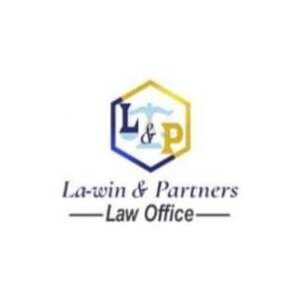Best Child Abuse Lawyers in Nepalgunj
Share your needs with us, get contacted by law firms.
Free. Takes 2 min.
Free Guide to Hiring a Family Lawyer
List of the best lawyers in Nepalgunj, Nepal
About Child Abuse Law in Nepalgunj, Nepal
Child abuse is a serious issue that is addressed under several Nepalese laws, primarily the Children's Act of 1992. This legislation makes it an offence to torture, neglect, or subject a child to unnecessary physical or psychological punishment. Child sexual abuse and exploitation are also strongly condemned and punishable under the National Penal Code 2017. Despite these measures, child abuse, especially in rural cities like Nepalgunj, remains a challenge due to cultural norms, lack of public awareness, and insufficient enforcement of laws.
Why You May Need a Lawyer
Legal expertise is crucial in cases involving any form of child abuse due to the sensitive nature of the issue and complexity of the legal framework. Lawyers can aid in navigating through the process, from filing a complaint to presenting evidence in the courtroom. They assist in understanding the rights and responsibilities of all parties involved, liaising with child welfare bodies, and securing compensation where applicable.
Local Laws Overview
The Children's Act prohibits any form of child mistreatment and imposes various penalties for violations. It also mandates that any form of child labor, absent of parental consent and standard regulations, shall be considered as exploitation. The law also outlines protective measures and penalties for child trafficking. Additionally, the National Penal Code 2017 has specific provisions on sexual abuse, punishing offenders with imprisonment and financial penalties.
Frequently Asked Questions
What is considered child abuse under Nepalese law?
Child abuse in Nepal is defined as any action or omission that harms a child's physical, social, emotional, or educational growth. It includes physical punishment, sexual abuse, exploitation, and negligence.
What legal actions can be taken if a child is abused?
Bringing any form of child abuse to the attention of the police or child welfare bodies is the initial step. The legal process includes an investigation, filing charges, legal counselling, trial, and if convicted, penalties ranging from imprisonment to fines.
Who can report child abuse?
Anyone who suspects or witnesses child abuse is legally obligated to report it. This could be relatives, teachers, neighbours, or even community members.
What happens after child abuse is reported?
Once abuse is reported, law enforcement or child protective services will launch an investigation. If the accused is found guilty, they are subjected to penalties as per the law, and the child will be provided with necessary support and protection.
Can a lawyer assist in child custody cases if abuse is involved?
Yes, lawyers play a crucial role in child custody cases especially when abuse is involved. They ensure the child's best interests are considered and help secure a safe environment for the child.
Additional Resources
Child Workers in Nepal Concerned Centre (CWIN) is a prominent organization providing support to abused children. Other resources include the National Child Rights Council and Central Child Welfare Board under the Ministry of Women, Children and Senior Citizens. Online resources include Probono.net and Nepal Law Commission for legal documents.
Next Steps
If you find yourself needing legal assistance related to child abuse, start by reaching out to local authorities or child protection agencies. Following this, seek legal counsel from a lawyer experienced in child abuse laws in Nepalgunj.
Lawzana helps you find the best lawyers and law firms in Nepalgunj through a curated and pre-screened list of qualified legal professionals. Our platform offers rankings and detailed profiles of attorneys and law firms, allowing you to compare based on practice areas, including Child Abuse, experience, and client feedback.
Each profile includes a description of the firm's areas of practice, client reviews, team members and partners, year of establishment, spoken languages, office locations, contact information, social media presence, and any published articles or resources. Most firms on our platform speak English and are experienced in both local and international legal matters.
Get a quote from top-rated law firms in Nepalgunj, Nepal — quickly, securely, and without unnecessary hassle.
Disclaimer:
The information provided on this page is for general informational purposes only and does not constitute legal advice. While we strive to ensure the accuracy and relevance of the content, legal information may change over time, and interpretations of the law can vary. You should always consult with a qualified legal professional for advice specific to your situation.
We disclaim all liability for actions taken or not taken based on the content of this page. If you believe any information is incorrect or outdated, please contact us, and we will review and update it where appropriate.








